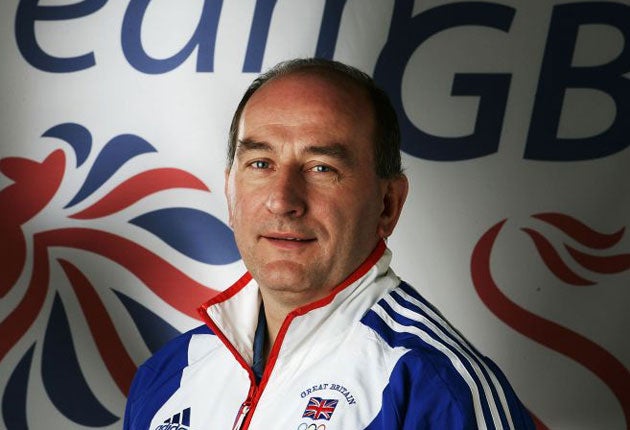Glasgow pledges 'sport-focused' event for 2014 after troubled run-up in India

Your support helps us to tell the story
From reproductive rights to climate change to Big Tech, The Independent is on the ground when the story is developing. Whether it's investigating the financials of Elon Musk's pro-Trump PAC or producing our latest documentary, 'The A Word', which shines a light on the American women fighting for reproductive rights, we know how important it is to parse out the facts from the messaging.
At such a critical moment in US history, we need reporters on the ground. Your donation allows us to keep sending journalists to speak to both sides of the story.
The Independent is trusted by Americans across the entire political spectrum. And unlike many other quality news outlets, we choose not to lock Americans out of our reporting and analysis with paywalls. We believe quality journalism should be available to everyone, paid for by those who can afford it.
Your support makes all the difference.The clock is ticking. The Commonwealth Games show was packing up and leaving town yesterday, the host nation proclaiming it a resounding success after the 12-day extravaganza managed to reach a conclusion without being struck by any of the major catastrophes that the shambolic run-up seemed to presage.
In three years and nine months, we will be doing it all over again – this time by the banks of the Clyde.
As the countdown starts, the hosts of Glasgow 2014 are looking to emulate the record of Delhi 2010 – the record haul of medals won by the home nations, that is, not the catalogue of organisational mishaps that very nearly scuppered the XIX Commonwealth Games before they had even begun.
"The target for 2014 is that we will have the best medal performance from a Scotland team," Michael Cavanagh, chairman of Commonwealth Games Scotland, said yesterday. "That means 33." And a hike of seven from the tally won by Team Scotland here in the Indian capital. Given the inspiration factor of a home Games, it is not an unreasonable increase.
Given the near-calamity factor of the Delhi Games, it would be reasonable to expect that the Glaswegian version will also be an improvement on the organisational front. It could hardly be any worse.
Asked what lessons he and his team had picked up in Delhi, John Scott, chairman of Glasgow 2014, said: "I've learnt we need to remain absolutely true to our vision of being about sport. We understand the need to be athlete-centred and sport-focused. If you get that right, the rest will fall into place. We will make sure that the village is right, that the venues are right, that the sports programme is right.
"India has admitted it hasn't done this kind of event since 1982. They had a lot to take on. They also had a massive capital programme to monitor and supervise. Those multi-strands of challenge stretched them hugely.
"All Games are different. We have not got the need for the facilities that a population of 13.5 million in Delhi alone requires. Glasgow is a city of some 500,000. What we will offer is something in a different way. One of the great things about Glasgow is it's very compact. A 20-minute journey time to any of the venues is absolutely doable.
"Our Games will leave an appropriate legacy. There are no white elephants in Glasgow. Only two venues were not planned as part of the strategic development of Glasgow's community and high-performance need: the 50m swimming pool and the velodrome. The athletes' village is a huge housing development in the east end. It's a regeneration. It will be very different to the village here, because it's a housing complex that we will adapt to a Games mode."
Join our commenting forum
Join thought-provoking conversations, follow other Independent readers and see their replies
Comments